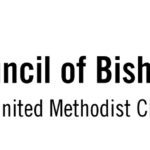By Kate Strohmeyer, Writer/Editor
How is the church transforming lives?
I first heard of Family Promise the day after Christmas, 2012. I was sharing with a friend the miserable Christmas morning at my house. I told her how my two teenagers had come up with a plot. Overcome by the Christmas commercial hype of the latest gadget, they had decided that if they did not get new iPhones on Christmas morning, they would not speak to my husband or me. They did not get an iPhone. They served us a substantially long silent treatment and a hefty side of guilt and ungratefulness. A tearful family discussion about the true meaning of Christmas followed, but the damage had already been done and the day was ruined.
My friend was sympathetic. She apologized and invited me to come with her to the church where her family was spending the week hosting five homeless families thanks to Family Promise of Greater Phoenix. She said because of this experience, her kids basically bypassed the gifts under their tree because they were so excited to spend Christmas with the homeless families. Her kids were overwhelmed to tears by the church’s generosity when the families opened their gifts. Now, that sounded to me more like Christmas. Ted Taylor, Director of Family Promise, calls it “love immersion” and he is adamant that love is what heals homelessness.
How does the church use Family Promise to create new mission, justice, and service opportunities?
Family Promise provides meals, a homelike setting, emotional support and a full range of social, economic, and educational services for homeless families. Several United Methodist churches* in the Desert Southwest Conference support their efforts. According to Ted,
“There is a shortage of shelters in the greater Phoenix area, especially those who do not separate men and women, and church support is critical. Host churches will actually house four or five families at a time for seven days—Sunday to Sunday. Families arrive to the church at 5:30 PM, and the church provides dinner at 6:00 PM, sometimes planning activities for after the meal until bedtime. The next day, families wake at 5:00 AM, and get picked up by a bus at 5:30 AM. They are taken to the Family Promise Center in Scottsdale, AZ where they receive services to begin repairing the damage of homelessness. First, they get help to get employed, and then get back into access to supportive housing. The average family spends 30 days to six weeks in the program. Ninety-two families were served by the churches and Family Promise in 2014.”
That is 92 families who, without the church, would otherwise be on the street. Families can be invited to stay and attend church services on Sundays. Attending worship is voluntary.
What if my church does not have the resources or space to host families for a week?
Family Promise is currently in need of three more host churches for 2015. If your church wants to begin a homeless ministry, but is lacking in financial or volunteer resources, Family Promise welcomes surrogate locations where churches with resources are volunteer hosts, but the surrogate church offers the families a space to eat and sleep.
If congregations want to get involve in another way, they can participate in events, like sleeping under the fall stars at the yearly Cardboard City awareness event, or volunteer at the Family Center. They also accept in-kind donations and no-cost to you tax credit donations.
How are you developing a vital culture that aligns with your church’s mission?
Is it a part of your church mission to combat poverty? Ted stated that Family Promise has returned 70% of families to sustainability in 60 days.
“God developed the model and He blesses it.”
One example is a single mom with three children who was rescued from the street. It was her first time being homeless. A luxury apartment complex CEO who happened to be a host for a week noticed she was a talented young lady. He surprised her one morning with breakfast and a furnished apartment for a year at no cost. She found employment with the complex, after three months she was promoted and continued to move up to a management position. She now speaks regularly about the successes of Family Promise, and the overwhelming grace and support she experienced.
Ted was also excited about the newly-built pet shelters. Many homeless families will choose the street over a shelter if it means they have to give up a beloved pet. PetSmart® is helping the organization to build pet sanctuaries at the Family Promise Day Centers, so families do not have to choose between receiving necessary support services and keeping their family pet. Churches can host the families without their pets, thanks to the pet sanctuaries. Family Promise is one of the only homeless shelters that allows pets.
How can my church start a homeless ministry?
Start by aligning a homeless ministry to your mission, as homeless ministries are not for every church. If the mission aligns, you can get ideas from other United Methodist churches who are helping at http://www.umc.org/search/tag/homeless-ministries .
Churches interested in helping with Family Promise can contact Paul Browning at paul.browning@infor.com or visit http://familypromiseaz.org.
*Editor’s Note: Participating churches include: New Song UMC (Surprise, AZ), Faith UMC , Trinity UMC, Desert Foothills UMC (Phoenix, AZ), Dayspring UMC (Tempe, AZ), and Velda Rose UMC (Mesa, AZ).




